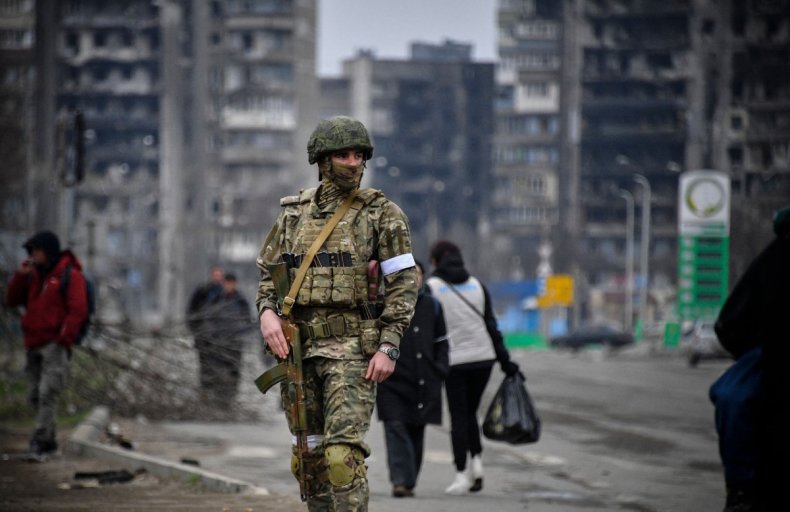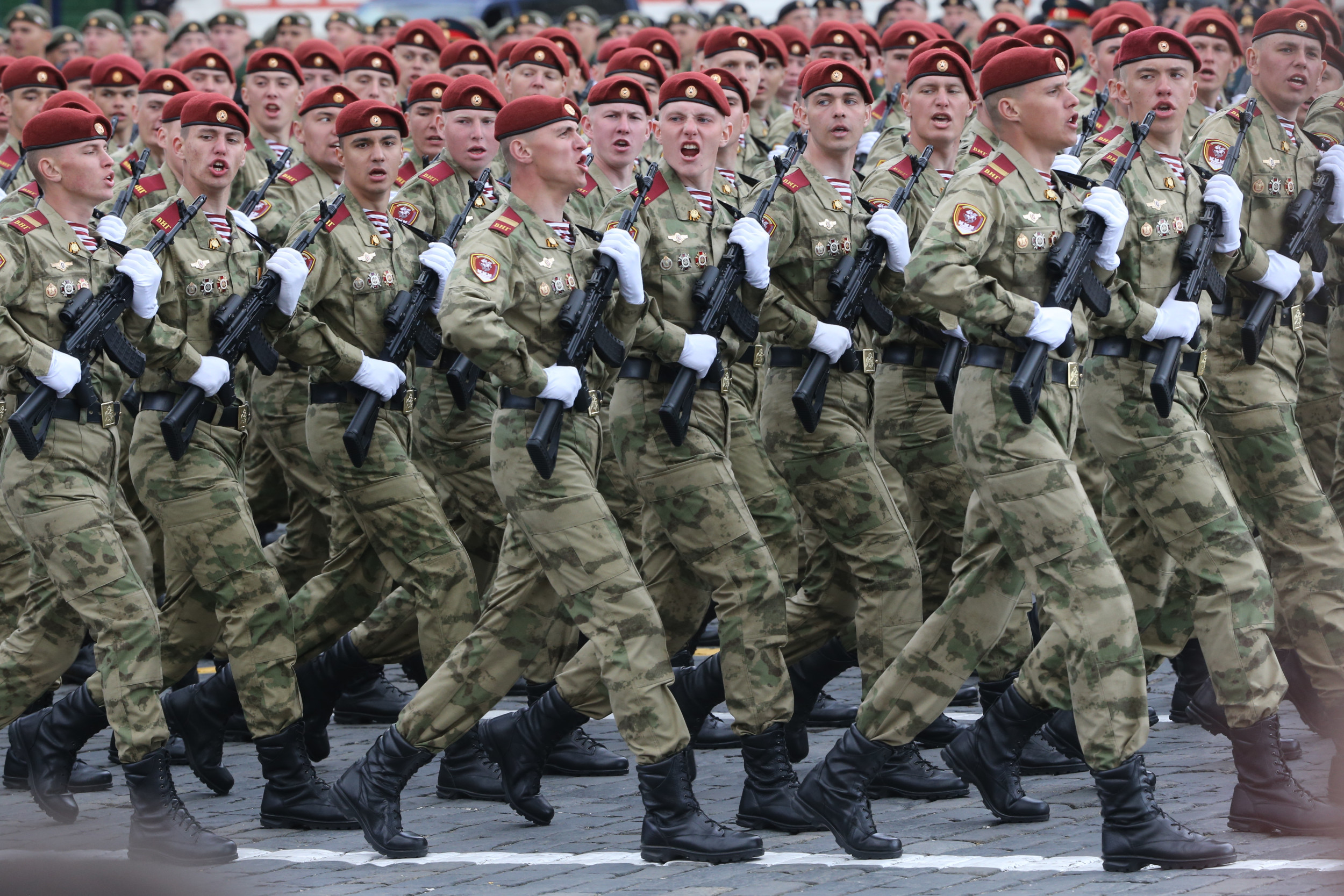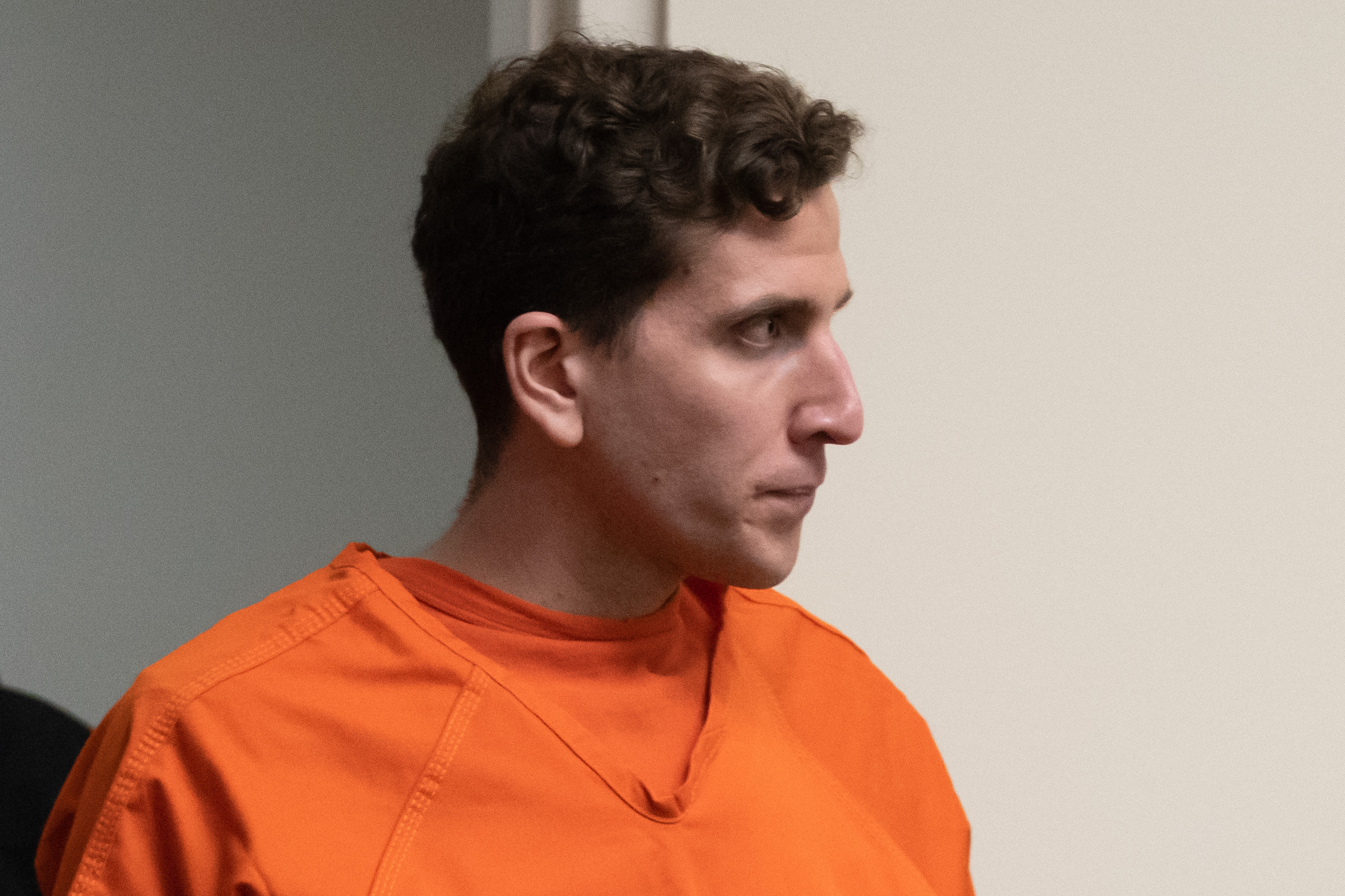Kremlin Cracks Down on Draft Dodgers
Moscow is clamping down on Russian citizens attempting to avoid military service, but has held off on imposing a second mobilization.
On Tuesday, the lower house of Russia's parliament, the State Duma, approved implementing a new digital register of all those eligible for military service, making it harder for those trying to avoid being called up to serve in the armed forces to dodge authorities.
Russian citizens who are sent an electronic summons must present to enlist within 20 days, and cannot leave Russia, state media reported. Those who fail to comply will have their rights, such as permission to drive a vehicle, restricted.
Andrey Kartapolov, head of the State Duma Committee on defense, said those evading their summons after the call-up period would also face restrictions on buying real estate and applying for loans.

The old system was "not updated," Kartapolov said, and the new digital register will put right "the shortcomings that were made last year during the period of partial mobilization."
Up until now, draft papers have been served to those being called up in person or by an employer, according to the BBC. Now, although paper summons will still be issued, the summons will be "considered received from the moment it is placed in the personal account of a person liable for military service," Kartapolov said.
Commenting on the new measures, the Washington-based Institute for the Study of War think tank said it had previously predicted the Kremlin would "marry Soviet-style societal control measures with big data and 21st-century information technology." This would "intensify control over the Russian population," the think tank added.
Russia has held off on announcing a new wave of mobilization after chaotic scenes followed the initial Kremlin announcement in September 2022. This saw men flooding across Russia's borders into neighboring countries, such as Kazakhstan and Georgia, in an attempt to avoid being swept up in the mobilization.
On September 21, Russian defense minister, Sergei Shoigu, called up 300,000 reservists with applicable military experience to fight in Ukraine. Russian President Vladimir Putin said the Kremlin's forces were taking on "virtually the entire military machine of the collective West."
Within days, drafted personnel had arrived at military bases, the British defense ministry said on September 26, adding that "tens of thousands" of call-up papers had already been sent out at that point.
A hastily organized operation, featuring poorly trained personnel, was likely to lead to a high attrition rate, the ministry said. In an update on February 17, the U.K. said Moscow's casualty figures had "significantly increased" since the "partial mobilization" was introduced.
The Kremlin has been reluctant to order another "unpopular" mobilization, according to Western analysts. In late March, the Kremlin signed off on a spring conscription campaign, but this was unrelated to Ukraine, Russian state media said.
Men between 18 and 27 are required to complete a year's worth of military service during their time in higher education in Russia.
In a Telegram post explaining the new measures on Tuesday, Russian online news outlet Readovka said that "there are a huge number of completely legal ways not to serve in the army, and no one has canceled them."








